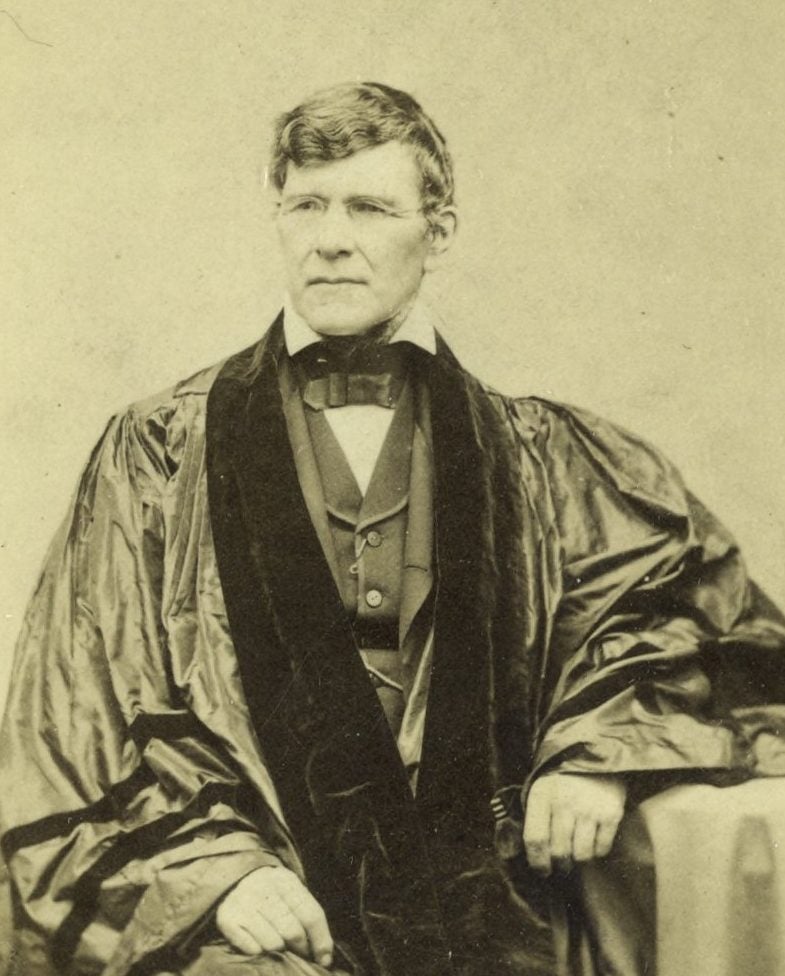George Allen, professor of Greek languages and literature, was born in Milton, Vermont, on December 7, 1808. His father, Herman Allen, was a respected lawyer and had served as a member of Congress.
Although raised in the Congregationalist, George Allen joined the Episcopal Church as a young man in 1824 and was ordained a minister in that church in 1834. Later in his life, in 1847, Allen was converted to Roman Catholicism, likely by the influence of John Henry Newman. It is notable that his conversion did not appear to damage his relationships with his colleagues at Penn, then a strongly Protestant institution.
Allen graduated from the University of Vermont in 1827 and remained there for two years as a substitute for one of the professors of languages. After leaving this post he studied law and was admitted to the Vermont bar in 1834. In 1837 Allen resigned his ministry in the Episcopal Church and accepted a position teaching ancient languages at Delaware College; he continued in this post until 1845 when he became professor of languages at the University of Pennsylvania.
Allen remained on the University of Pennsylvania faculty from 1845 until 1875. In 1864, when Francis A. Jackson was elected to the Latin chair, Allen narrowed the focus of his study and teaching to Greek language and literature. In addition to his classical studies, Allen was well known as an authority on the game of chess, writing several chapters on the subject during his tenure at the university. His library of books on chess and other subjects was purchased by the University of Pennsylvania after his death. In 1868, the University of Pennsylvania granted Allen an honorary degree of doctor of laws.
Allen married Mary Hancock Withington in 1831; they had four children. He died in Worcester, Massachusetts, on May 28, 1876.

